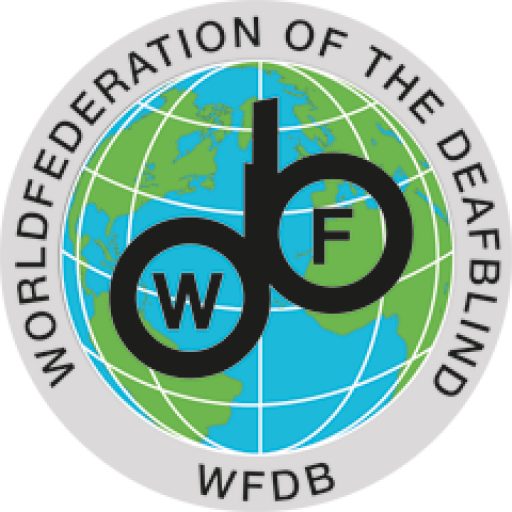WFDB is proud to be a project partner of the ASSIST Project, a three-year initiative co-funded by the European Union under the Erasmus+ Programme. The project seeks to reduce discrimination and attitudinal bias among healthcare professionals—including doctors, nurses, psychologists, and midwives—when providing care to women with disabilities throughout all stages of motherhood.
In its second newsletter edition, published during Disability Pride Month, the ASSIST Project highlights the newly proclaimed International Day of Deafblindness (27 June), established by the United Nations General Assembly. This historic milestone brings long-overdue recognition to the unique experiences, challenges, and rights of people with deafblindness. The date honours the birth of Helen Keller, a pioneering advocate and the first person with deafblindness to obtain a university degree.
To mark the occasion, the ASSIST Project shines a spotlight on one of the most overlooked groups within both disability and maternal health conversations: mothers with deafblindness.
Groundbreaking Research in Croatia
As part of Work Package 2, WFDB—together with our Croatian member organisation, DODIR—led an in-depth case study on the experiences of mothers with deafblindness in Croatia. This research combined literature review, surveys, focus groups, and interviews to uncover persistent systemic barriers in accessing respectful and inclusive maternal healthcare.
The findings were striking and urgent. Mothers reported feeling invisible during medical procedures, routinely excluded from communication, and rarely consulted about key decisions affecting their reproductive health. Despite Croatia’s obligations under the UN Convention on the Rights of Persons with Disabilities (CRPD), women with deafblindness continue to face deeply entrenched discrimination and neglect within the healthcare system.
“Doctors talked over me, not to me. It was like I wasn’t there.”
— Mother with deafblindness, Croatia
“No one asked how I was feeling after the birth—not once.”
— Survey respondent
Systemic Gaps, Not Isolated Incidents
These findings do not point to a lack of goodwill among individual professionals. In fact, several participants described powerful moments of dignity—thanks to healthcare workers who took time to learn basic signs, provide tactile communication, or simply ask how they were doing. However, the overwhelming message is clear: the system is not designed to include them.
Among the key takeaways:
-
Communication barriers were widespread and caused lasting emotional harm.
-
Reproductive autonomy was often disregarded.
-
None of the respondents were screened for postpartum depression or anxiety.
-
Family planning discussions were virtually non-existent.
These are not isolated failures—they reflect structural exclusion. The absence of training, inclusive protocols, and data collection means the needs of women with deafblindness are systematically overlooked in policy and practice.
A Roadmap for Change
In response to these findings, targeted recommendations have been issued, including:
-
Developing disability-inclusive maternal health policies with input from women with deafblindness.
-
Training all healthcare staff in accessible communication methods, including tactile signing.
-
Integrating the experiences of women with deafblindness into healthcare planning and monitoring systems.
-
Making mental health support a standard part of postnatal care.
“It was only when I met a nurse who knew tactile signing that I felt safe.”
— Mother with deafblindness, Croatia
Why It Matters
This case study demonstrates how lack of accessibility is not merely a technical issue—it is a matter of dignity, health, and human rights. By centering the voices of women with deafblindness, the ASSIST Project is helping to reshape maternal healthcare systems that work for everyone, not just for the majority.
As one mother powerfully stated:
“I want my daughter to grow up in a world where her mother’s voice matters.”
A Call to Action
We call on policymakers, healthcare providers, educators, and advocates across Europe and beyond to take meaningful action. Together, we must ensure that all mothers—regardless of their abilities—are seen, heard, and supported.
WFDB extends our heartfelt thanks to DODIR and the wider ASSIST consortium for their commitment to inclusion. We are proud to be part of a project that puts lived experience at the heart of systemic change.
Read the newsletter
The full ASSIST Project Newsletter – Issue 2 (July 2025) is now available in Word, PDF, and Plain Text formats.
You can access it in the following languages: English, Spanish, Italian, Greek and French

